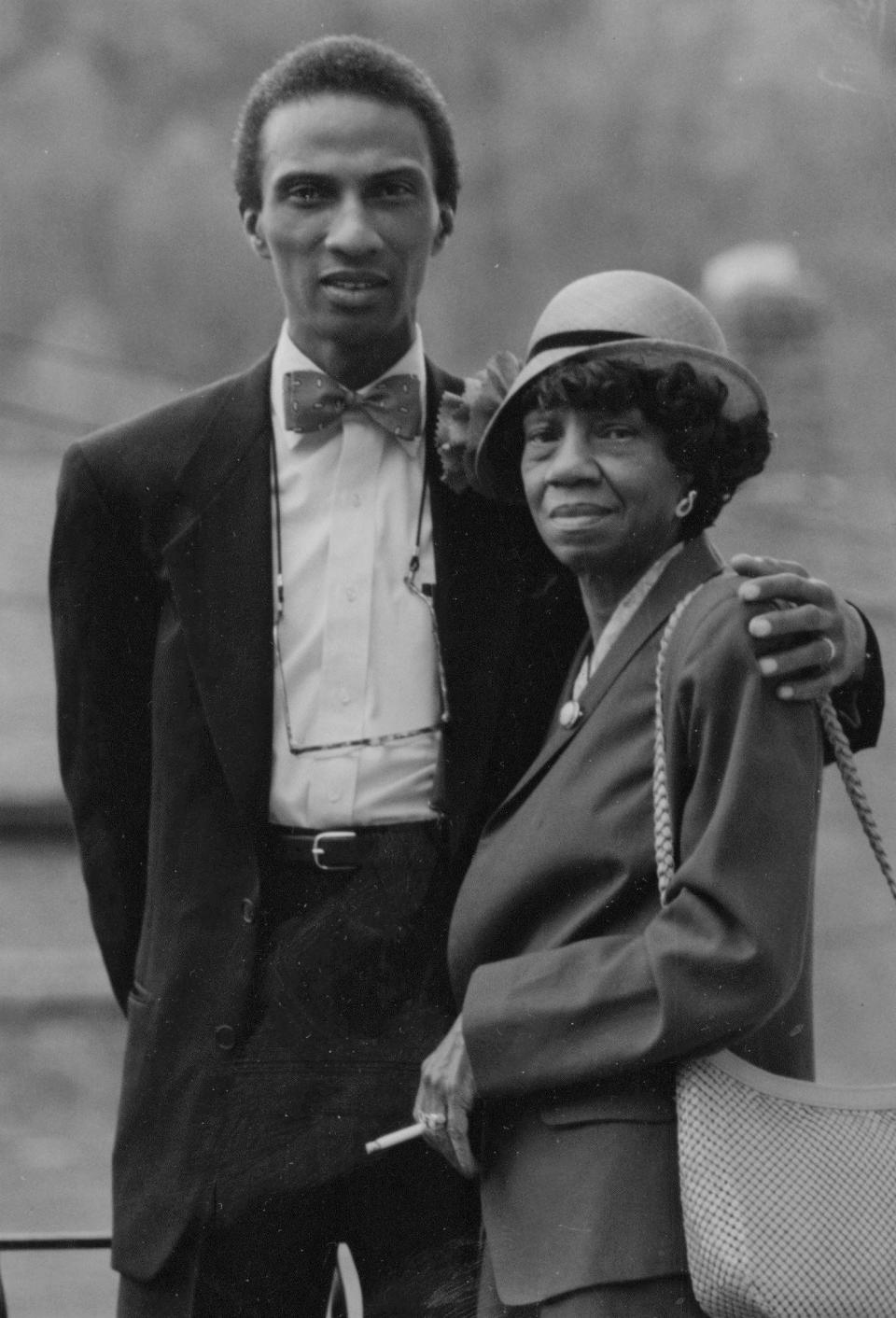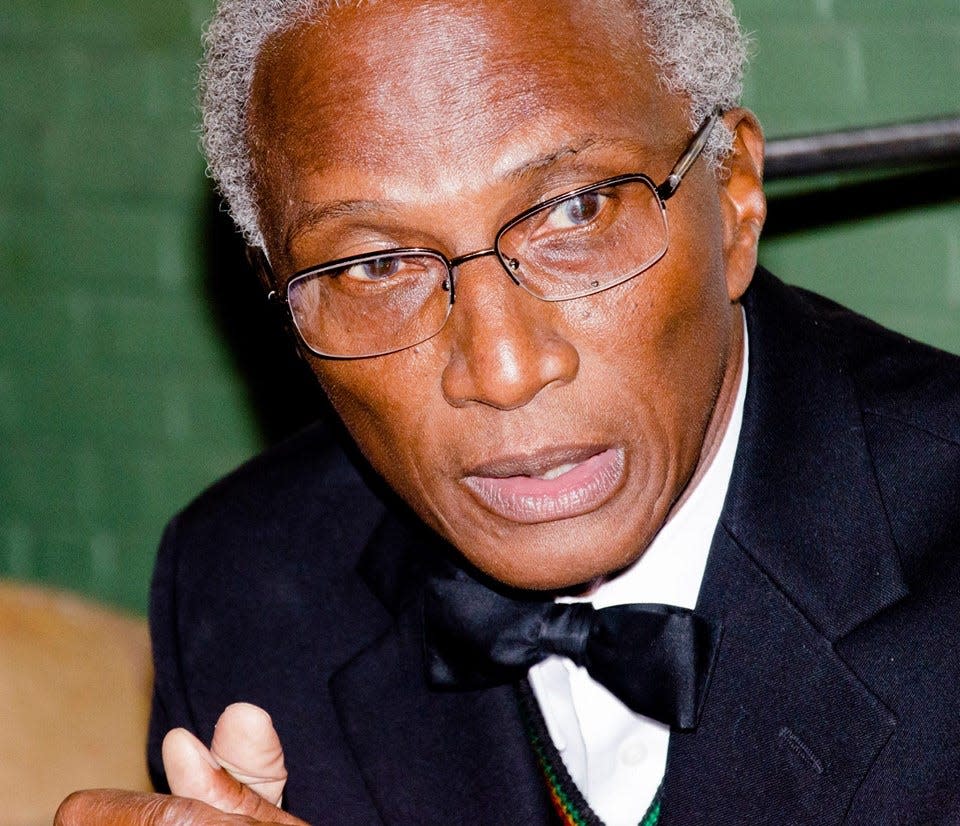Vance ignored Black Appalachia in 'Hillbilly Elegy.' To him, racial inequity is normal.
I was born in 1946 and raised in a Black coal mining family at the foot of Black Mountain, Kentucky’s highest peak, in Harlan County. From its summit, during my frequent hikes as a teenager, I could see — looking to the northwest — the ridges of Breathitt County, the ancestral homeland of JD Vance. Vance came to my attention with his 2016-published best seller, "Hillbilly Elegy: A Memoir of a Family and Culture in Crisis," the most derogatory and uncomplimentary stereotype of people from the Appalachian Region that I ever read.
Vance’s memoire advanced the viewpoint that economic policies had abandoned the white middle class and tricked poor whites into learned helplessness; the narrative became the spinal column of the catchphrase “Make America Great Again.” "Hillbilly Elegy" was seized up by filmmaker Ron Howard onto the silver screen four years ago, with Oscar-nominated Glenn Close playing the role of his Appalachian-typecast Mamaw; and before the world could say “Apple-lay-cha,” not “Apple-at-cha,” as we natives pronounce it, Vance was swiftly catapulted to a seat in the U.S. Senate in 2022 and on to his recent selection as the 2024 Republican vice presidential candidate.

While "Hillbilly Elegy" put Vance on the map, he was elevated onto the national political mountaintop by Peter Theil, the billionaire cofounder of PayPal and extreme right-wing activist with deep ties to another tech oligarch, Elon Musk. Even though Vance referred to Donald Trump in 2016 as “an irrepressible idiot” and “America’s Hitler,” \Theil took him to Mar-a-Lago and got Trump to endorse Vance for the 2022 Ohio Senate race. Elon Musk pledged $45 million a month in support of Trump when Vance was announced as his choice for vice president.
My ties to Appalachia are as strong as JD Vance's
My mother was born a century ago into a coal mining family in Harlan County and my grandfathers, father, four uncles and oldest brother worked as coal miners in Eastern Kentucky and Southwest Virginia, overlapping, from the time of Reconstruction through the mid-1990s. By the time that the mechanization of coal mining was almost complete in the middle of the 20th century, thousands of families — like Vance’s and mine — had left Central Appalachia for the Midwest, to what came to be called the Rust Belt, by the time Vance was born (1984). They migrated to cities such as Columbus, Cleveland and Dayton, where much of the Black working class populated the hyper ghettos. As most who write about Appalachia, Vance had virtually nothing to say in "Hillbilly Elegy" about the color of the canaries in coal mines or how Black workers were the last hired and first fired in the American manufacturing spaces.
Gerth: Mitch McConnell's response to Biden withdrawal shows he's lost any grace he ever had
Surely, Supreme Court Justice Clarence Thomas (also an up-from-poverty Yale Law School grad with mega-wealthy friends) delights in the choice of Vance as vice president, what with the similarity of their journeys and political views. In 1980, Thomas, Black, while seeking the endorsement of conservatives, described his sister as “dependent” on welfare— and accused her of making her children feel “entitled” to welfare payments instead of being motivated to work. Vance laid the failure to succeed on the part of working-class whites to their own individual decisions and “hillbilly” culture; since, as white people, they should have achieved the American Dream, just as he, a Yale Law School grad; but instead, many — like his drug-addicted mother — chose other paths. In Faustian fashion, both sold out and betrayed their “own kind,” their kin and relations.
In "Hillbilly Elegy," Vance quite effectively hit a nerve among those who, by the election of 2020, were so openly disgruntled and so ideologically disaffected that they rallied, violently, at the U.S. Capitol on January 6, 2021. Working-class whites — framed by Vance as “victims” of neo-liberal woke-ness, political correctness and displacement by immigrants — had no better choice to regain their loss status than to zealously support policies that would “Make America Great Again, which required the rewriting — and ignoring — of American history. Vance deserves a Pulitzer for his role in this process.
Jennifer Senior, in her review, "'Hillbilly Elegy’: A Tough Love Analysis of the Poor who Back Trump," (New York Times: August 10, 2016) glorified Vance’s working class bona fides: “…his ancestors and kin were sharecroppers, coal miners, machinists, millworkers — all low paying, body-wearying occupations that over the years have vanished or offered diminished security.” In "The Harlan Renaissance," I wrote, “…were it not for the Black underclass, Mr. Vance’s working-class whites would have had a label much more pejorative than 'Hillbilly,' and the book might well have been subtitled: 'Thank God for Black People in America!'"
Black Appalachians are forgotten
There is one standard of analysis that explains the condition and treatment of the Black working class, and another for economically marginalized white people. The fact that Vance hardly mentions the experience of Black Appalachians in "Hillbilly Elegy" shows that he sees racial discrimination as both understandable, normal and even to be expected. But when the same economic inequality and attendant insecurity applies to white people, even those making the wrong choices, the narrative becomes incomprehensible and perceived as an unendurable and existential threat of the first order. Mr. Vance says, essentially, “This just should not happen to white people in America.”
Many voters agree with Mr. Vance, no matter how cynical the logic or whether a Trump/Vance victory in November will darken the America which President Ronald Reagan described as the "shining city on the hill," like Black Mountain on a moonless midnight. We'll see.

Bill Turner, Ph.D. who as a University of Kentucky student spoke to a packed Memorial Coliseum the night after Dr. Martin Luther King Jr.'s assassination, went on to become a prominent historian, professor and university administrator.
Agree or Disagree? Submit your letter to the editor here.
This article originally appeared on Louisville Courier Journal: Vance's 'Hillbilly Elegy' excludes Black Appalachians like me
